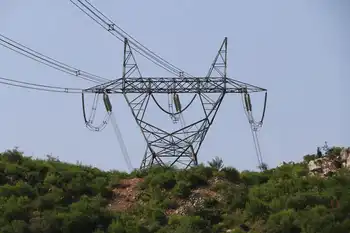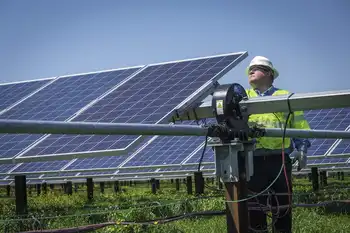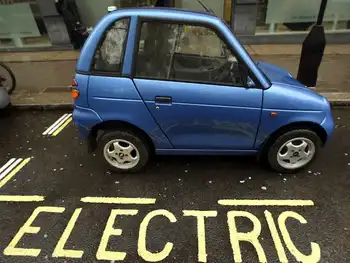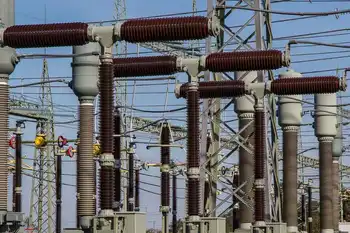Regulators request renewables study
By Knight Ridder Tribune
NFPA 70e Training
Our customized live online or in‑person group training can be delivered to your staff at your location.

- Live Online
- 6 hours Instructor-led
- Group Training Available
During deliberations, Commissioner Jim Roth asked the commission staff to research several issues concerning the use of renewable energy in Oklahoma. He urged the staff, which examines issues before the OCC and then makes independent recommendations, to analyze the renewable energy standards in other states.
The staff will also look at whether the commission has the authority to require utilities to adhere to a renewable energy standard and whether power provided under that standard could be offered at a low cost to consumers. Assistant Attorney General Bill Humes urged the commission to carefully consider the integrated resource planning process, which requires that least-cost, safe and reliable service be provided to consumers.
"We want to make sure that the renewables fit in the IRP process and are not forced in," Humes said during the deliberations. In written comments submitted to the commission, the state Attorney General's Office, which represents consumers in utility matters, supports renewable energy that meets the "least cost" expectation, or where the "tangible social benefit" outweighs that expectation.
"The Attorney General submits that there should be tangible benefits realized from the inclusion of renewables in a utilities portfolio that extend beyond a 'feel good exercise,'" the comments state. In January, the three-member commission opened a notice of inquiry asking utilities and industry to comment on renewable energy sources such as wind, solar and hydro power.
The inquiry is aimed at developing rules that could shape a "renewable portfolio standard" for Oklahoma. Such a standard is a state policy that requires utilities to obtain a percentage of their power from renewable sources by a certain date. According to the U.S. Department of Energy, two dozen states and the District of Columbia have adopted renewable portfolio standards. But a standard has not taken root in Oklahoma, where utilities are already involved in exploiting renewable energy for their customers.
The Oklahoma Industrial Energy Consumers, a group of about 20 of the state's largest electricity users, supports further research.
"We are in favor of further study, and the commission's decision was the right one," said Tom Schroedter, executive director of the OIEC.
The group supports initiatives that provide the lowest reasonable cost of energy, Schroedter said. Reasonable costs may not be the least expensive alterative. An evaluation of sources should include the security of supply, the reliability of the energy and the short- and long-term impact on customer rates, he said.
The state's largest electric utilities - American Electric Power-Public Service Company of Oklahoma and Oklahoma Gas & Electric Co. - support renewable power but do not favor requirements that exclude energy sources from consideration.
Both utilities provide renewable energy to their customers. AEP-PSO generates about 10 percent of its total power from wind. OG&E plans to quadruple its wind power, which now generates 3 percent of its electricity. Following the deliberations, Alan Decker, director of regulatory affairs for AEP-PSO, said any renewable energy requirement should also address logistical concerns.
For instance, wind resources are located in western Oklahoma, but the need for power is n the central and eastern parts of the state, requiring utilities to also build transmission facilities. "I think the utilities are willing to build it," he said.
"It's whether or not we're going to get cost recovery." The commission is planning to resolve the issues surrounding renewable energy by April 1, when it plans to submit proposed rules to the Legislature.











